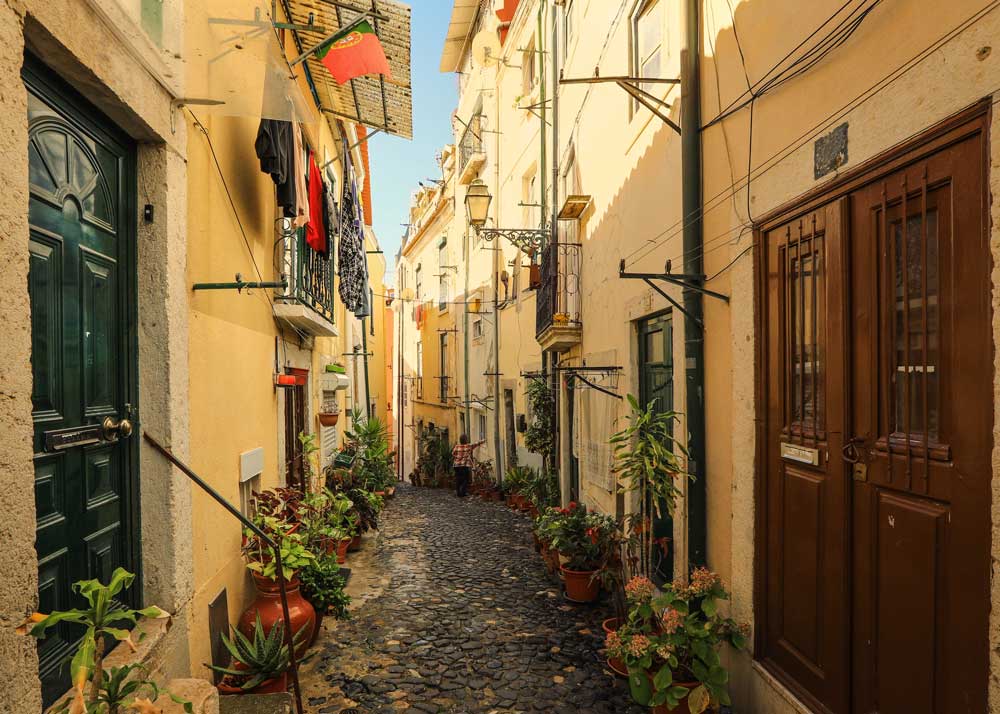
The Sound of Stone Underfoot
The places I remember best are the ones where I felt a connection. Alfama, an old neighborhood rising from the coast of Lisbon, Portugal, in a pile of low, tile-roofed buildings, drew me into its narrow streets one spring morning and almost didn’t let me go.
When I stepped off of the bus that morning, I had nothing planned. To one side rose hundred-year-old buildings, to the other, an expanse of water, hills and buildings disappearing into the haze on the other side. The noise of the avenue and the odor of the harbor at low tide gave way to silence and the aroma of baking bread.
I already knew something of Alfama before my trip to Lisbon. It’s a famous neighborhood that nevertheless seems to attract tourists yet resist transformation into a theme park. Turn down the right streets and you’ll find a place where people live, work, shop, and eat. Sit outside on white plastic chairs with a cup of coffee in the morning and a beer in the evening. Exchange a bom dia and an olá with neighbors as they pass.
Lisbon enshrines the remnants of the Portuguese Empire: its cathedrals gilded in Brazilian gold, its Moorish palaces, its aromas of Mozambican spices wafting from restaurants, its jewelry stores full of Indian diamonds. At its heart, it’s just as fast-paced, cosmopolitan, and commercial as London. But few big cities have a neighborhood like Alfama, where the pace of the world comes not to a grinding halt but a restful one.
Lost in Alfama’s maze of ancient cobblestone streets, you can forget you’re in the heart of a European capital. The roar and hiss of trucks and buses seems a world away, and I hear only the melancholic strains of a guitar playing fado spilling from an open window above. It falls silent, and only the sound of my footfalls echoing through the cavernous streets carries its rhythm on.
They say it's not like it used to be, but there are still narrow roads that only the locals walk. I turn away from the shops and ascend a stairway pressed by tall houses that opens up onto a little stone plaza, a disused fountain at its heart. Another turn leads me to a square of grass that feels like a grand park amid the cramped buildings rising on three sides.
I stroll its narrow alleyways and feel myself deeply entwined with its world, its pace of life, its rhythm. I could see myself living here, I tell myself. Yet I know this place is not mine, not where I belong. I’m only here for a moment, a guest enjoying its change of pace while Lisbon roars beyond the edges of this neighborhood. Portugal once put its stamp on the world, and the world, in return, has transformed Lisbon. Traversing the labyrinth of Alfama has changed me in some way, and I emerge into the noise of the city refreshed, at ease, ready to continue my travels.

